Horse and Cattle Free Choice Block control of fecal files in manure.
INGREDIENTS: Cane molasses, soybean hulls, dicalcium phosphate, salt, potassium chloride, potassium sulfate, magnesium oxide, vitamin A supplement, vitamin D3 supplement, vitamin E supplement, riboflavin supplement, d-calcium pantothenate, thiamine mononitrate, niacin pyridoxine hydrochloride, biotin, ferrous sulfate, zinc oxide, manganous oxide, manganese sulfate, copper sulfate, ethylenediamine dihydriodide, cobalt carbonate, sodium selenite, yeast culture, hydrolyzed animal fat.
FEEDING DIRECTIONS: Feed 1 block per 5 head of cattle or horses. This allows all animals equal access to blocks. Feed blocks at the rate of 0.5 oz. per 100 lb. of body weight. This intake will supply 0.07g of larvicide per 100 lbs. of body weight per day (2.1 grams per 100 lbs. of body weight per month). Place blocks where animals congregate. Locate blocks throughout pasture, placing them near water and loafing areas. Maintain adequate distance between blocks (10 ft. minimum). Do not allow animals to run out of blocks. When a block is half-consumed, place a new block near. Place very small pieces in troughs or feed pans. Cattle or horses should consume about 5 oz. per head daily. When animals consume the block at the recommended rate, it will supply 3 mg. of supplemental selenium. Blocks can be fed to animals in confinement. Exact location of blocks to obtain desired consumption will vary between confinement feeding programs. Feed as the only free choice source of salt, other minerals and vitamins. Sweetlix Rabon Molasses Pressed Block prevents the development of fecal flies in the manure of treated cattle and horses, but it is not effective against existing adult flies. It may be necessary to use other control measures to reduce the population of existing adult flies. Supplemental fly control measures may be needed in and around buildings to control adult house flies and stable flies which can breed not only in animal manure but in other decaying matter on the premises. In order to achieve optimum fly control, Sweetlix Rabon Molasses Pressed Block should be used in conjunction with other good management and sanitation practices. Start feeding this block early in the spring before flies begin to appear and continue feeding throughout the summer and into the fall. Sweetlix Rabon Pressed Molasses Block may be fed to cattle up to slaughter and may be fed to pregnant mares. Follow feeding direction. Consumption of selenium should not exceed 3 mg. per head per day.
Type Feed Description Guaranteed
Analysis
Block Free Choice For Beef Cattle
and horses Tetrachlorvinpnos 0.494%
Calcium, Min 4.50
Calcium, Max 5.50
Phosphorus, Min 4.00
Salt, Min 15.00
Salt, Max 18.00
Potassium, Min 2.00
Magnesium, Min 1.00
Iodine, Min(ppm) 69
Copper, Min(ppm) 27
Selenium, Min(ppm) 21.6
Zinc, Min(ppm) 540
Vitamin A, Min (IU/LB) 100,000
Vitamin D3, Min (IU/LB) 25,000
Vitamin E, Min (IU/LB) 100
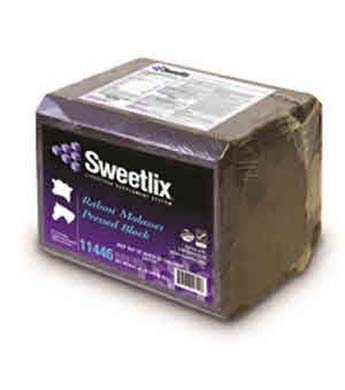
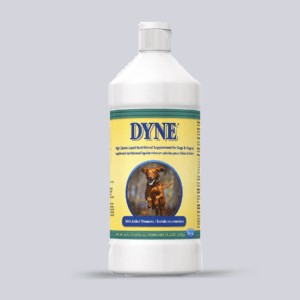
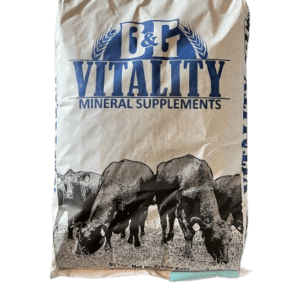
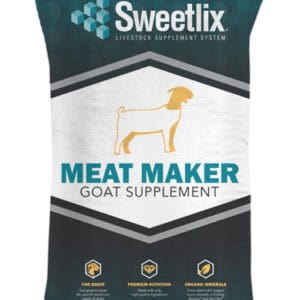
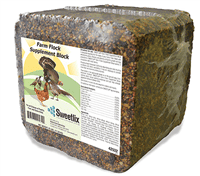
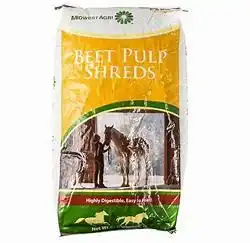
Reviews
There are no reviews yet.